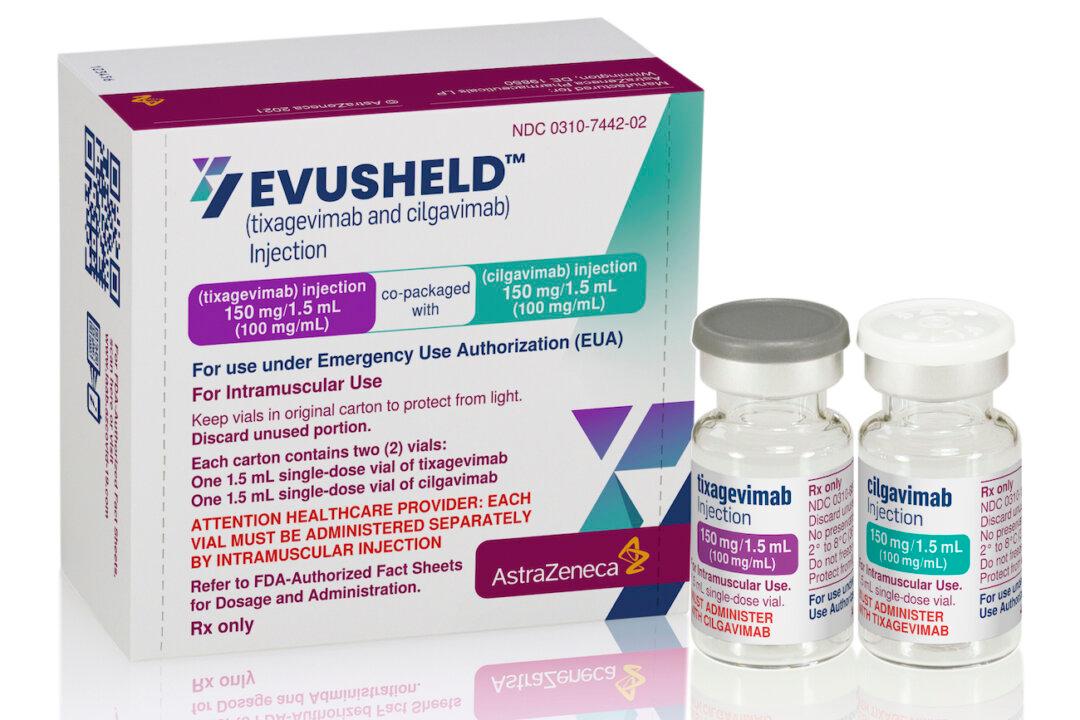Evusheld has become the latest COVID-19 antibody drug to lose federal authorization after it was deemed ineffective against the dominant versions of the virus.
The U.S. Food and Drug Administration (FDA) on Thursday withdrew its emergency use authorization for Evusheld, a two-dose cocktail of monoclonal antibodies meant to provide protection to those who have a compromised immune system that makes them more vulnerable to severe COVID-19 infection than others.





